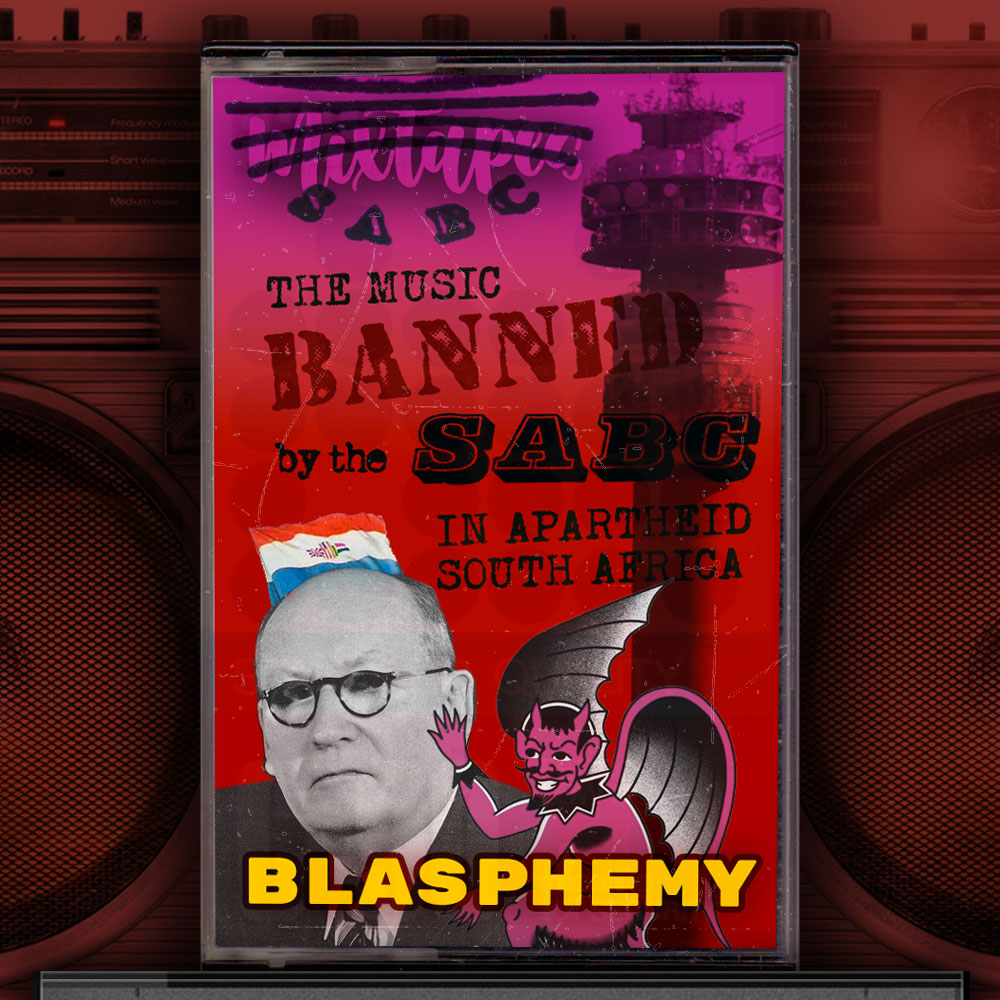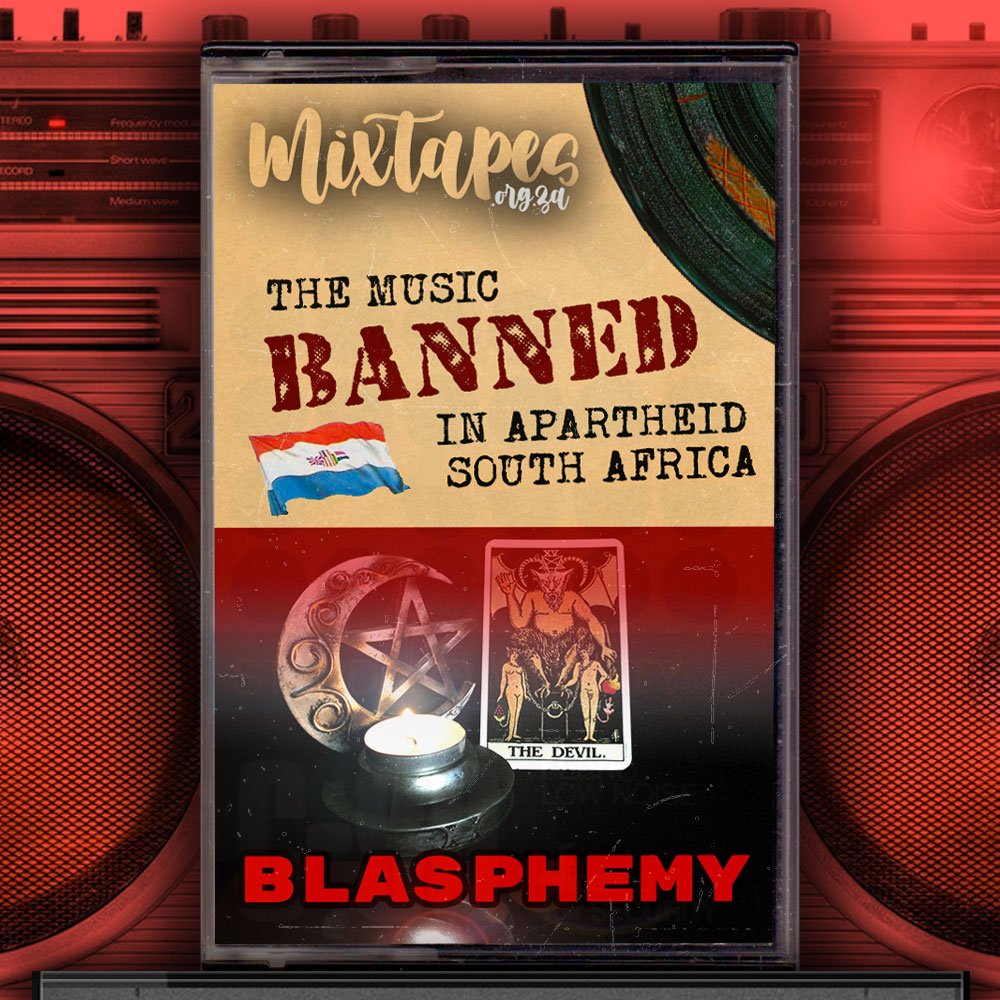
The SABC censors took it upon themselves to safeguard the narrow Calvinist worldview which the government allegedly upheld. This included commandments one, three and four: “no other gods but me” and “do not take my name in vain” (blasphemy) and “respect the sabbath day and keep it holy”. The examples included in this mixtape were deemed to have broken these commandments in one way or another.
Duane Allman and Aretha Franklin’s “The Weight” was regarded as blasphemous because of its possibly irreverent take on biblical scenarios such as Joseph and Mary looking for a place to stay in Bethlehem, while Howard Tate’s “Part Time Love” fell afoul of the blasphemy criteria simply because Tate prays in anguish, “Lord, I’ve got to find me a part time love”. Similarly, in “Swearin’ To God”, Frankie Valli swore to god in thanks for the woman he addresses in the song. Other songs which were deemed to make fun of or belittle god included Bronski Beat’s “Truthdare Doubledare” in which the person singing the song asks the preacher if he thinks Jesus would like what s/he has done, and accuses the church of lying and being unfaithful to everyone, while in “Let’s Go” the Eurythmics sing “Forget about the preacher man, let’s do it on the ground’. In “Where’s The Party” by Nina Hagen, the singer claims that “Our landlord is Jesus Christ and Mickey Mouse” while in “Over The Wire”, Shriekback sing about: “The devil himself getting over the wire, well all god’s children got their dubious side; and it’s deep and dirty and it’s real wide”.
“Sheep” by Pink Floyd follows the theme of George Orwell’s Animal Farm, warning against simply following an ideology without thinking about why one is doing so. The song is written from the perspective of a sheep. The Lord’s prayer subsequently takes on a different form: “He maketh me to hang on hooks in high places; He converteth me to lamb cutlets”, which was viewed as blasphemous by the censors, as was Flash Harry’s “No Football” about not being allowed to play football on a Sunday, even though more people would have preferred to watch football than go to church.
In “Blasphemous Rumours”, Depeche Mode question human tragedy: “I don’t want to start any blasphemous rumours, but I think that God’s got a sick sense of humour; And when I die I expect to find him laughing”. Kate Bush’s “Waking The Witch”, is critical of the Christian practice of witch hunting and persecution. The SABC censors decided it was blasphemous, presumably for being critical of the religious people carrying out the practice.
Similarly, “Seventh Son Of A Seventh Son” by Iron Maiden was viewed as promoting some sort of witchcraft, being a song about a specially anointed person with superior powers as a clairvoyant because he is the seventh son of the seventh son.
Chris De Burgh’s “The Devil’s Eye” continues the “Spanish Train” saga in which the devil returns to control people through their tv screens. There is reference to how the devil cheated against god and won the world. Clearly, the SABC censors hadn’t gotten over the trauma of “Spanish Train” and decided to prohibit the song from airplay. “The Crippled Messiah” by Falling Mirror doesn’t include any specific reference to Christianity but the censors thought that the word ‘messiah’ must have involved some sort of suspicious reference to Jesus, the Christian ‘messiah’.
Black Sabbath’s “Sabbath Bloody Sabbath” was written about the ups and downs of being members of Black Sabbath as a band, but was taken by the censors as a sacrilegious song about god’s ‘Sabbath’ day. Another song about being rock n’ rolls stars, AC/DC’s “Highway To Hell”, suggested that doing all the rock ‘n roll things they do put them on a highway to hell. Perhaps the censors banned it because they thought the song made the road to hell enticing for listeners. Another song about the allure of the dark side (although in a different sense) was “A Touch Of Evil” by Judas Priest, banned from airplay by the SABC censors as Satanic because of reference to “a dark angel of sin; preying deep from within; come take me in.” In the song the protagonist cannot resist the “touch of evil”.
Lucky Dube’s “Jah Live”, Carlos Dje Dje’s “Jah Give Us This Day” and Pongolo’s “Jah Do That” are all reggae songs paying homage to the Rastafarian god, ‘Jah’, and were all ‘avoided’ by the SABC censors because of their view that Jah is a false god, and thus these songs were deemed to break the first commandment, that there should be only one god, and that god was certainly not Jah.


